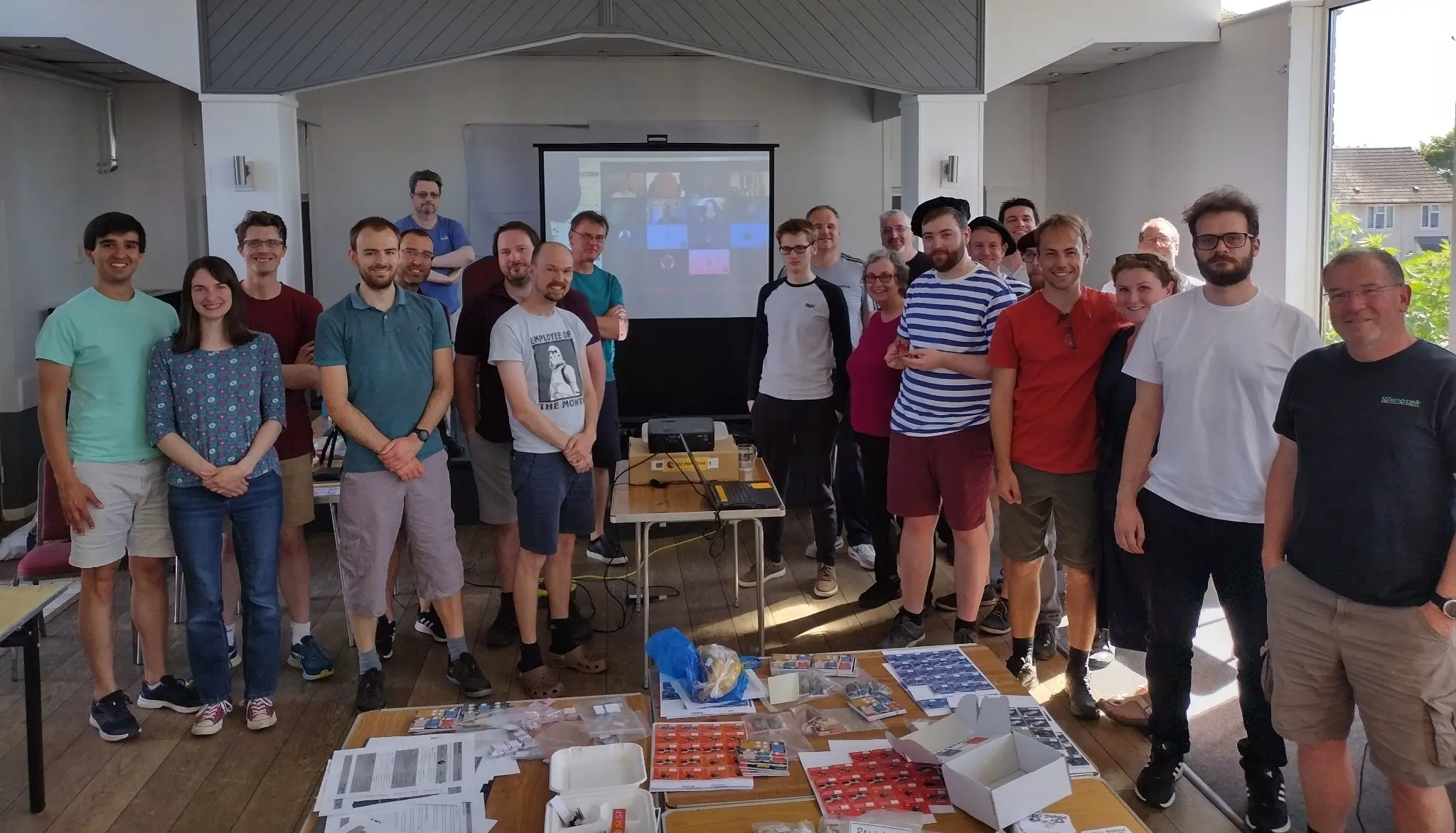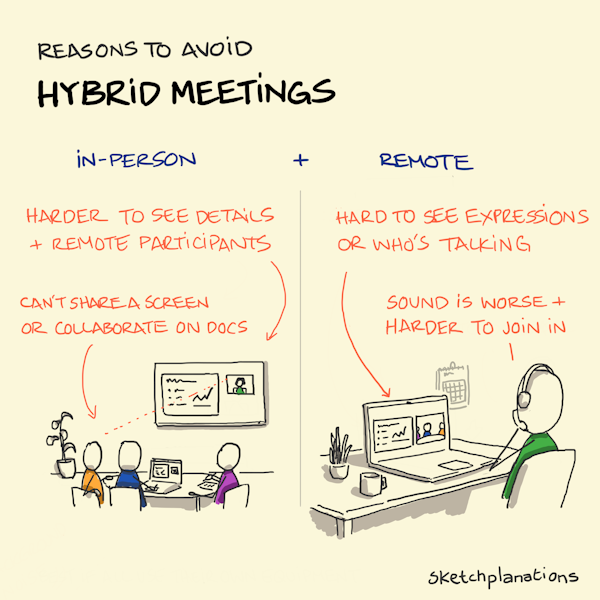Lessons From Running a Hybrid Megagame
Prologue:
As I wrote up in my recent weeknotes, earlier this month I helped run a hybrid megagame called Bad Moon Rising, organised by South West Megagames. This was a megagame based in an alternate history of the world, set in the 1970s during the Cold War, but with all the nuclear powers having also established bases on the Moon. If you’re not familiar with megagames do watch this video, or think of a “megagame” as just being a board game or tabletop role playing game, except with anywhere from 20 to 300 players.
I was part of the Control Team… actually, there’s a great description of what the Control Team is and does from the roles guide for the game, where “GM” means “Game Master”:
A small team of players will be helping to run the game and manage certain parts of the experience. The Control Team are effectively a team of GMs ensuring that the rules are applied properly, and allowing players to interact with parts of the game that aren’t established by existing mechanics. This role is best suited to people who have attended a megagame before or who are familiar with this sort of responsibility.
This particular run of the game was “hybrid”, meaning that all the players representing their country’s military or civilian presence on the Moon were located in Moredon Community Centre in Swindon, but all the players representing their counterparts on Earth were located on a Discord server online. With dedicated laptops available on Moon/Swindon, as well as personal devices of course, the Moon based teams could communicate online with their Earth based counterparts to request supplies, take orders, discuss strategy, and so on.

In person and online players combined. ( Discord server on the screen at the back )
We were pretty sure this was the first hybrid megagame, rather than one where all the players were online; but it turns out that Dillon Burke has actually run one in New Zealand several months prior. The introduction packs for that game can be found here and there’s a very comprehensive write-up of the game, and the feedback it received, on Dillon's blog.
As I said in those weeknotes, “The benefit of hybrid setups is definitely something I need to write about separately, as I think there are many implications for the kind of exercises I run in a work context.” So here’s a brief list of the benefits of hybrid megagaming, the start of some advice, and hopefully a prompt for further conversation.
Lessons From Running a Hybrid Megagame:
See hybrid as an advantage - don’t try to work around online players as an obstacle, or treat them as equivalent to in-person players… what can the difficulty of the hybrid connection be used to model? For Bad Moon Rising this was the distance between the Moon and the Earth. In a subsequent game that was only in-person, players were located to two separate rooms, with very limited communication between them. In the design phase, take this one step further, what does a hybrid format enforce that you couldn’t achieve in-person. For example on Dillon’s blog he’s written some great ideas in response to post-game feedback:
Post game feedback, we think that online players are best suited for asymmetric roles, e.g. Gods on Mount Olympus, or Megacorporation AIs, with their own core subgame that interacts indirectly with most of the other subgames
Contextually the difficulty of hybrid can reflect aspects of in-game world… are the Gods unresponsive because Discord is playing up, or because they’ve got their own machinations to navigate and don’t have time for mere mortals?
Have a dedicated Hybrid Control - for Bad Moon Rising one member of the Control team onsite was specifically “Hybrid Control”, and spent most of the game in front of a laptop communicating with the online Control staff, and navigating through the online spreadsheets that represented the Earth team’s orders for shipments to the Moon. Therefore as I was online I wasn’t delayed trying to catch the attention of Control in the physical aspect of the game, I received answers or advice as quickly as if we were all online.
Ensure the bridge between real and virtual gaming is resilient - in Bad Moon Rising the virtual players, representing Earth, decided on what resources to send to the Moon and filled out spreadsheets to represent this. But these shipments were decided as the first action within each turn online, but only delivered in the physical game on the “Moon” at the end of that turn. I don’t know if this was accidental or intentional design, but this meant if there were any communication problems with what was being transported from the Earth to the Moon there was most of a half hour turn to resolve an issue.

Dedicated Discord channels for Earth and Moon players to communicate by text or voice.
Be prepared for communication failures - Internet connectivity is probably at the most ubiquitous and dependable it has ever been, but still there might be issues. While we never really discussed it an advance I expect if Internet connectivity had been lost to the Moon we could have communicated with the Control team there using text messages, or even voice calls. Similarly, with those experienced Control Team members in the hall, I expect they would have announced that a solar storm had cut off all communication with Earth, and all the shipments, and had the players deal with that situation.
For once the mute button is your friend - proclamations and statements were made by the Earth players to the entire game, including the Moon - via Discord. The applause from the Moon in response was welcome, but otherwise the Moon was muted. Aggressive muting of a noisy physical to online, or of online players in group conversations, is important.

Dedicated Discord channels for the Earth's nuclear powers to type at each other.
Dedicated technology is essential - in this context South West Megagames and Stone Paper Scissors, who were both at the event, had enough laptops for each team on the Moon to have a dedicated “comms station” to reach the online players on “Earth”. For this kind of game, what do you have, or what can players bring? Having been part of a well run hybrid meeting with many of the same people, sourcing good quality microphones and cameras also helps, but where “good quality” is increasingly becoming cheaper.
Pre-test your setups - just get everyone online as early as possible, to check everything works as expected, including headsets for online Control; if time permits of course. It’s an optimistic expectation, but if possible see how well the venue’s Internet connectivity will handle the required connectivity in advance.

An astronaut's eye view of the Moon map.
Put the online people in the physical space - maybe occasionally or permanently put them on the screen you’re using for updates and announcements, but if it fits the theme make them present to the physical participants. If possible within the design, have a reason for virtual and physical worlds to meet - maybe even use this as a way to mark turn progress and keep all players in step. This keeps each side of the divide aware of the other.
Bad audio is worse than bad video - while I don’t have research to back up this supposition, in discussion after the game, we agreed that online interaction is greatly affected by bad audio more than it is by bad video. A glitchy or disrupted video feed can be annoying, but an indistinct or echoey audio can literally stop you thinking. Also it’s easy to see what your camera is showing online, much harder to figure out how you sound. Do give feedback whenever necessary, and don’t hesitate to drop video if it helps manage low bandwidth.
Be patient and positive - in order for hybrid megagames to work everyone involved needs to be patient, assume the person at the other end of the connection is having to deal with something else at the same time, never react to what appears to be a short or sharp comment, put your best face on at all times. As with all communication, but especially online, it’s easy to escalate a misunderstanding into something worse.
On that last point, I was one of two players acting as Earth Control for the day. The other was Kurt LaRue, who I’d only met online briefly the previous week, and who was going that weird thing Americans do of being active before 10AM local time. We were both immediately open with each other, made it clear that feedback was welcome during the game, and I think had a really enjoyable day; I look forward to working with Kurt again in future.
Epilogue:

Where else is my advice applicable?
Overall, as always, megagames are still an experimental, unwieldy, and almost intentionally difficult format; they’re difficult to design, to playtest, and to manage. But in return I think they are fascinating, in both hobby and professional contexts there is something very special about seeing such a complex situation modeled, and in seeing how individual actions do or don’t affect a complex system.
I’m being ambitious, but I think the success of this version of Bad Moon Rising indicates a bright future for hybrid megagaming. Also having played only one or two distributed hybrid games - where multiple physical locations, and online players, are taking part in a scenario simultaneously - I want to see what’s possible there too. This is stretching the format and technology, and possibly the interest of players, but there’s so much more we could do, and so many more situations we could explore.
And lastly, I suspect at least some of these ideas are transferable to hybrid meetings - from the requirement for a dedicated facilitator between physical and virtual, to the call for positivity and patience. If you can make the hybrid format of anything work, when all those around you are struggling, you’ve a distinct advantage in your field now, it’s just a case of determining how best to use it… to gain an advantage over your business competitors because your remote employees are so much more effective… or to out-manoeuvre those insidious foreign powers while mining for minerals on the Moon.

